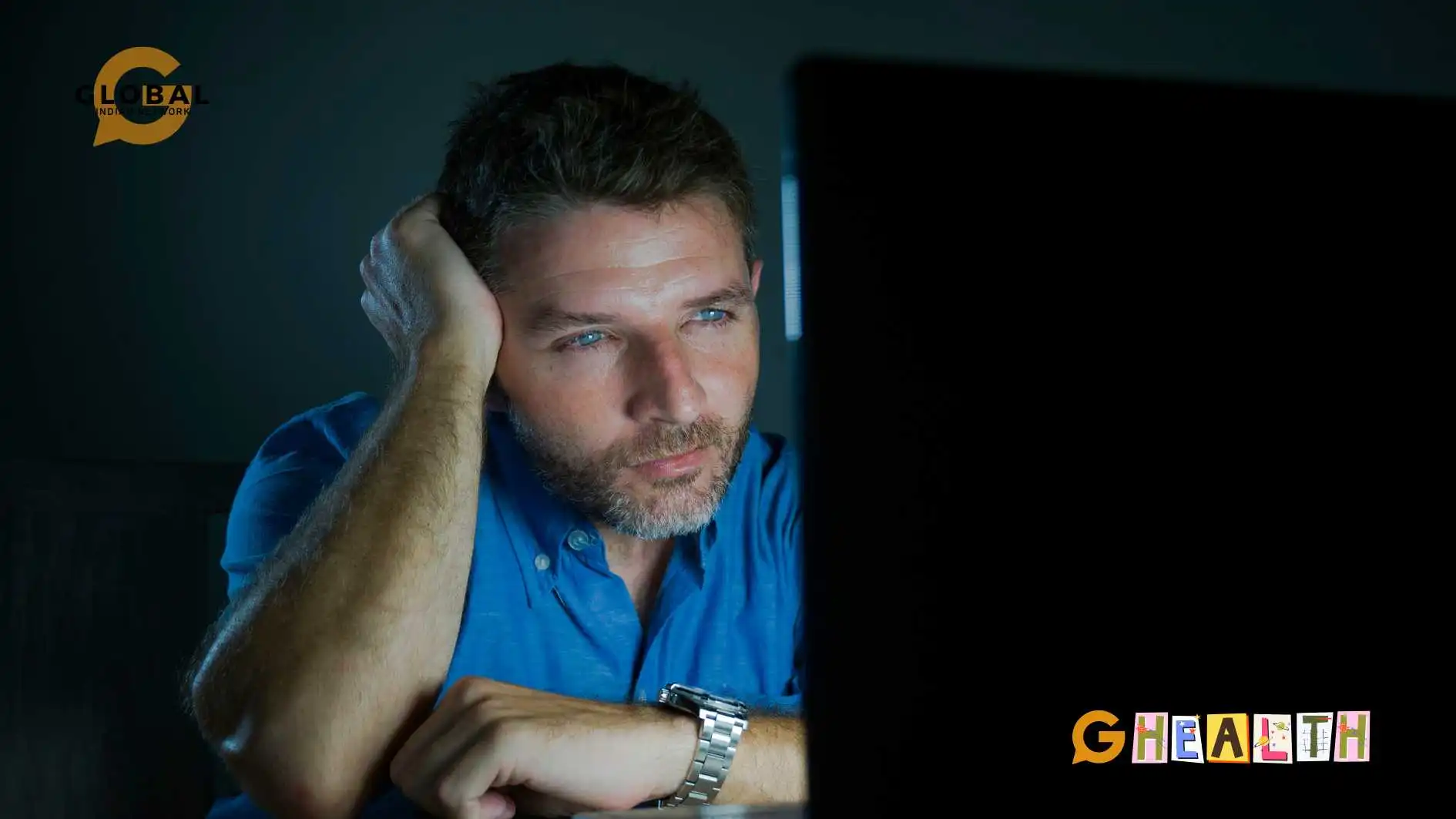Sex addiction, a complex condition, can significantly influence cerebrum function and behaviour. Understanding its side effects and fundamental causes is crucial for grasping neurological impacts. In this article, we’ll dive into sex addiction effects on the brain, offering insights into the difficulties and intricacies people face in dealing with this condition.
Table of Contents
What is Sex Addiction?
Sexual addiction implies being completely focused on sexual thoughts or exercises that you have zero control over, and they can hurt your well-being, connections, work, or other parts of your life. Other names for it are enthusiastic sexual way of behaving, problematic sexual way of behaving, hypersexuality, or sexual impulsivity. Although the exercises in question, similar to masturbation or watching erotic entertainment, can be normal parts of a sex life, when they begin taking your life, it could mean you have a sexual addiction. It’s like when these thoughts and actions take on a life of their own and cause problems.
How are Sex Addicts Impacted?
Hypersexuality seems to influence around 3% to 10% of the overall U.S. populace. It’s more typical in men than ladies. Sexual addiction typically begins at the age of 18. Most people don’t connect for proficient assistance until age 37. Many people (88%) have a background marked by other emotional wellness conditions, as well, including:
- Behavioural disorders
- Anxiety disorders.
- Mind disorders
- Impulse control issues
- History of self-destruction endeavours
Causes of Sexual Addiction
Sexual addiction has many different and intricate causes that can vary from person to person. A few potential variables include:
- Biological variables: Contrasts in brain chemistry or hormonal levels might add to habitual sexual behaviour.
- Irregularity of mood chemicals in your mind: Your brain’s neurotransmitters (dopamine, norepinephrine, and serotonin) may have high levels or become overactive, leading to an increase in sexual desire and addictive behaviour.
- Psychological factors: Basic mental issues like trauma, low confidence, or relational issues might assume a part in the development of sex addicts.
- Social elements: Sex addicts may develop and manifest in ways that are influenced by peer pressure, social norms, and cultural attitudes toward sex.
- Natural variables: Early openness to sexual content, encounters of abuse or disregard, or useless relational intricacies could add to the advancement of problematic sexual behaviours.
- Conditions that affect or harm the region of your mind that controls sexual behaviour: Conditions, for example, dementia, epilepsy, bipolar disorder, and damage to your cerebrum, amygdala, or prefrontal cortex region of your brain might add to hypersexuality.
Is Sex Addiction the Same as Other Addictions?
Sex addiction is similar to desires felt for liquor or drugs by people who have addictions to these substances. It’s a feeling of being out of control, never being satisfied, or constantly fighting to control something on autopilot. You return to the way of behaving — again and again — despite the negative consequences.
While there are similarities, it’s essential to perceive that every habit has its unique qualities and may require tailored ways to deal with treatment and support.
Sex Addiction Effects on the Brain
Sex and pornography addictions, likened to drug addiction, have huge impacts on the brain. Dopamine, a neurotransmitter associated with pleasure and reinforcement, is released when these compulsive behaviours hijack the reward system in the brain. After some time, people might foster resistance, requiring more outrageous improvements to accomplish similar dissatisfaction, prompting changes in brain structure and function.
The neurological effects are exacerbated by watching explicit videos, which stimulate arousal centers in the brain and may make people less sensitive to healthy sexual stimuli. This can bring about mental contortions, emotional dysregulation, and hindered motivation control, sustaining the cycle of addiction and complicating recovery efforts.
Here are a few ways by which compulsive behaviours due to sex influence the brain:
- Brain structure: Studies have recommended that chronic commitment to sexual habits might prompt changes in brain structure, especially in areas related to remuneration handling, impulse control, and decision-making. These progressions might add to the pattern of impulsive sexual behaviour.
- Emotional regulation: A dysregulated sexual way of behaving can affect emotional regulation processes in the mind, prompting expanded levels of stress, nervousness, and depression. People with excessive sex addiction might involve sexual activities as a maladaptive survival strategy to control negative feelings.
- Reward circuitry: Taking part in sexual activities sets off the release of dopamine, a neurotransmitter related to joy and reward. Over the long haul, people with sex addiction might encounter dysregulation of the brain’s reward framework, prompting elevated desires for sexual stimuli and trouble encountering delight from different activities.
- Neuroplasticity: The mind’s capacity to adjust and change in light of encounters, known as neuroplasticity, might be impacted by chronic engagement in sex addiction.
You Might Be Interested In: From Embarrassment to Empowerment: Understanding Porn Addiction with Dr Paula Hall
Symptoms of Sex Addiction
Even though there are no settled standards for hypersexuality, characteristics that are usually found in a hypersexual individual or sexual addict include:
- Porn is frequently seen, obtained from recordings, adult magazines, and the internet (websites, webcams). When watching pornography, masturbation is common.
- Planning sexual activity, including the location and method of the next sexual “high,” consumes an excessive amount of time.
- A preoccupation with sex is obvious, with extensive time spent fantasizing about sexual desires and taking part in sexual ways of behaving.
- As more and more activities involve human interaction, frequent sexual service use is indicative of a progression. Ways of behaving could include telephone sex, associations made through web discussion boards, instalments for sexual experiences, visits to strip clubs, and engaging in multiple partners or frequent one-night stands.
- Sexual conduct persists despite negative effects on relationships, finances, health, or emotions, indicating an inability to stop.
- Sexual ways of behaving participate that go against individual qualities, religious beliefs, or cultural standards.
Disadvantages of Sex Addiction
Sex addiction has several drawbacks, including:
- Increased risk of sexually transmitted infections.
- Trouble in keeping up with work or scholastic execution because of distractions with sexual activities and thoughts.
- The overall decline in well-being and quality of life is a result of the addiction’s compulsive nature.
- Health consequences include pregnancy and physical infections like HIV, hepatitis B and C, syphilis, or gonorrhoea.
- Issues with money as a result of paying for sexual activities.
- Absence of an ordinary, solid relationship with your sexual partner and your loved ones.
- Possible prison or jail time for sexual offences.
- Adverse consequences on emotional well-being, like uneasiness and depression.
Psychological Problems and Personality Issues in Sex Addiction
Exacerbating its effects, sex addiction frequently coexists with mental health conditions or personality issues. Looking for help from medical care experts prepared for addiction and mental health is significant for dealing with the condition successfully. People battling with sex addiction might encounter extreme sexual impulses, like those found in chronic drug addiction. Pornography addiction, specifically, can add to the acceleration of these impulses, prompting hurtful ways of behaving.
A comprehensive approach that incorporates therapy, support groups, and lifestyle changes is necessary for preventing relapse and controlling sexual urges. People may likewise profit from procedures like care, stress management, and developing solid survival strategies.
It’s crucial to address basic issues and triggers while building serious areas of strength for an organization. With appropriate mediation and support, people can recover control over their ways of behaving and lead satisfying lives liberated from the grips of sex addiction.
ALSO READ: 7 Sex Addiction Coping Skills and Strategies for a Healthier Life
Conclusion
In conclusion, the perplexing interaction between sex addiction and the brain highlights the requirement for comprehensive support and intervention. Understanding sex addiction effects on the brain engages people to look for suitable treatment and embrace better survival methods. People can recover control over their behaviour by resolving hidden issues and triggers and preparing for a more balanced and fulfilling life.
FAQs
What do addictions do to your brain?
Addiction can create some issues with concentration, memory, learning, decision-making, and judgment.
Are sex addicts capable of love?
An individual with sex addiction can feel love and become hopelessly enamoured. However, they can genuinely love somebody after they heal themselves.
Why do sex addicts get married?
A sex addict can choose a mate for similar reasons someone else could. They feel the requirement for security with a partner. Like different kinds of people with an addiction, they usually try to keep the addiction a secret.










[…] topic of sexual addiction is a complex and sensitive issue that affects individuals and their relationships but is often […]
[…] Sex addiction is a complex and often misunderstood issue that can have profound effects on an individual's life. In the field of addiction recovery, the Sex Addiction Three Circles framework is a valuable tool for understanding and managing problematic sexual behaviors. This model, developed by Dr. Patrick Carnes, delineates three distinct zones – inner, middle, and outer – to help individuals identify their sobriety boundaries and navigate the path to recovery. […]